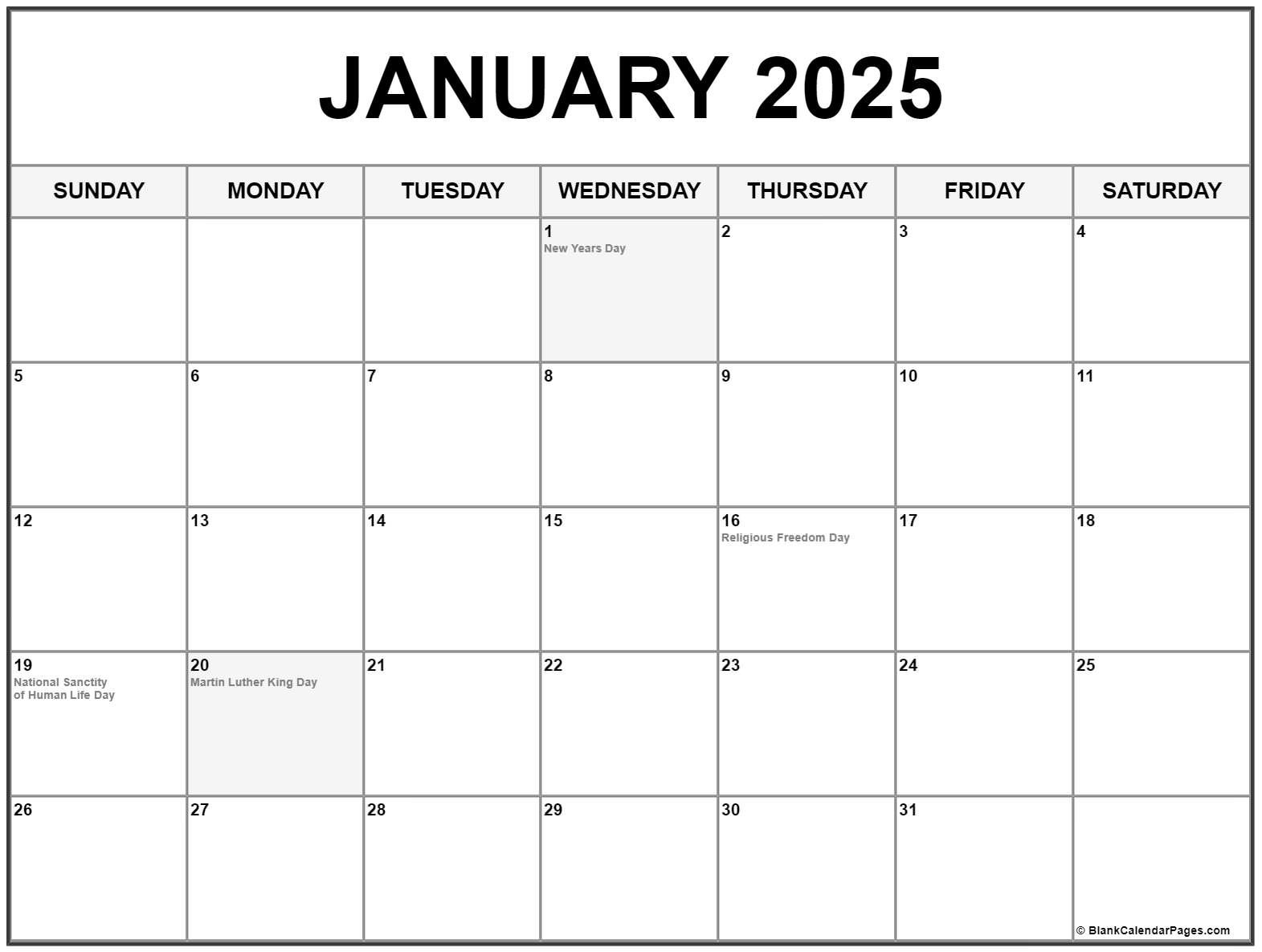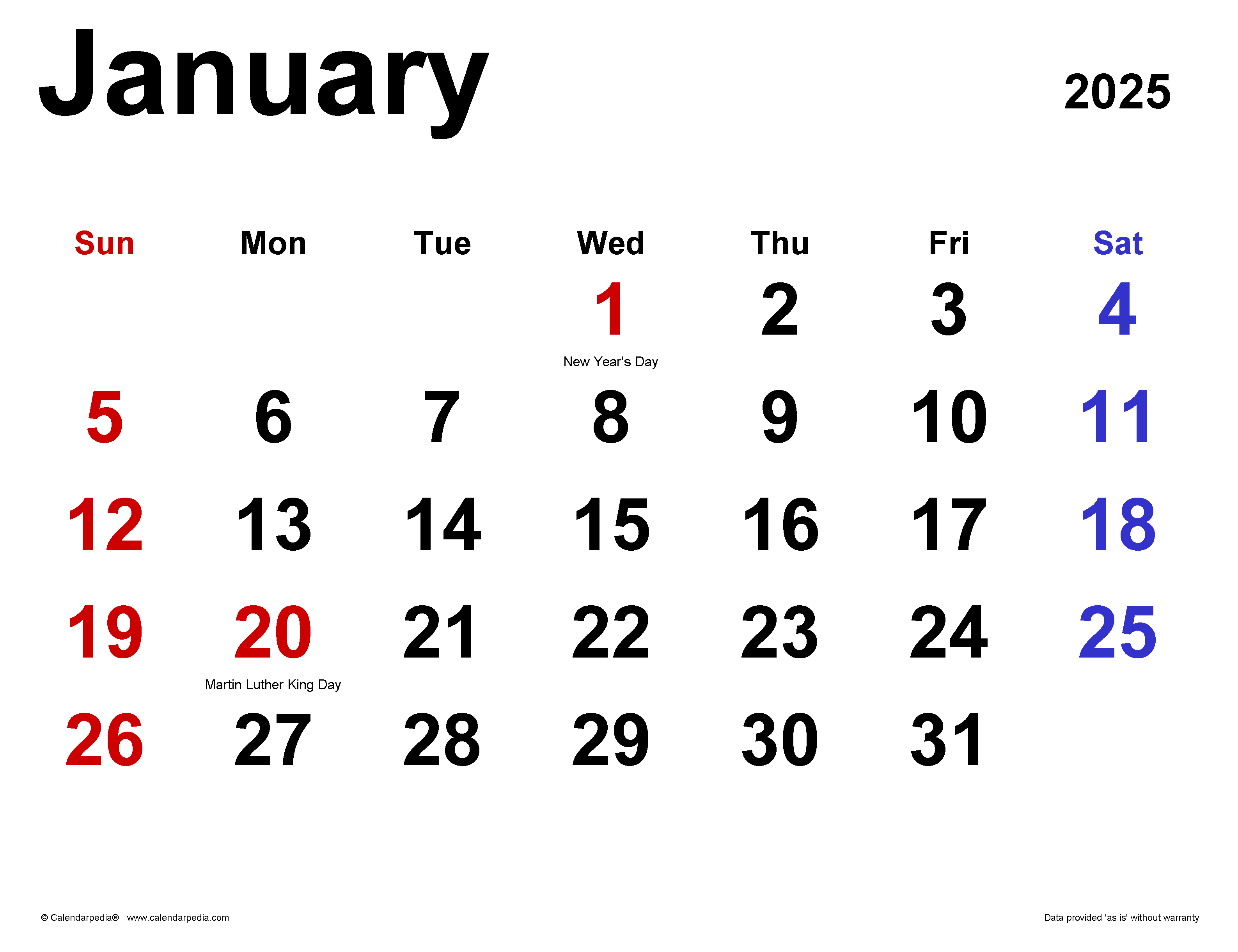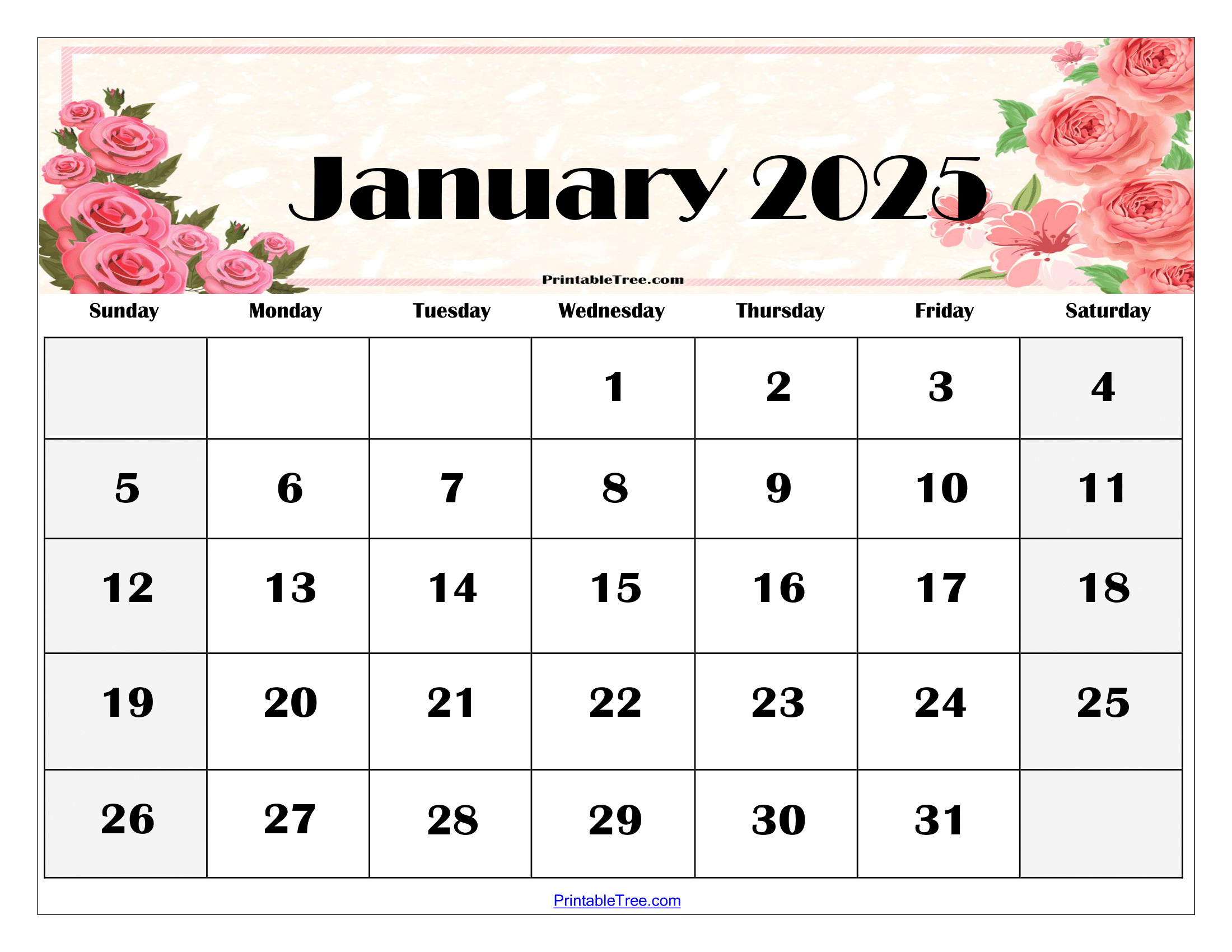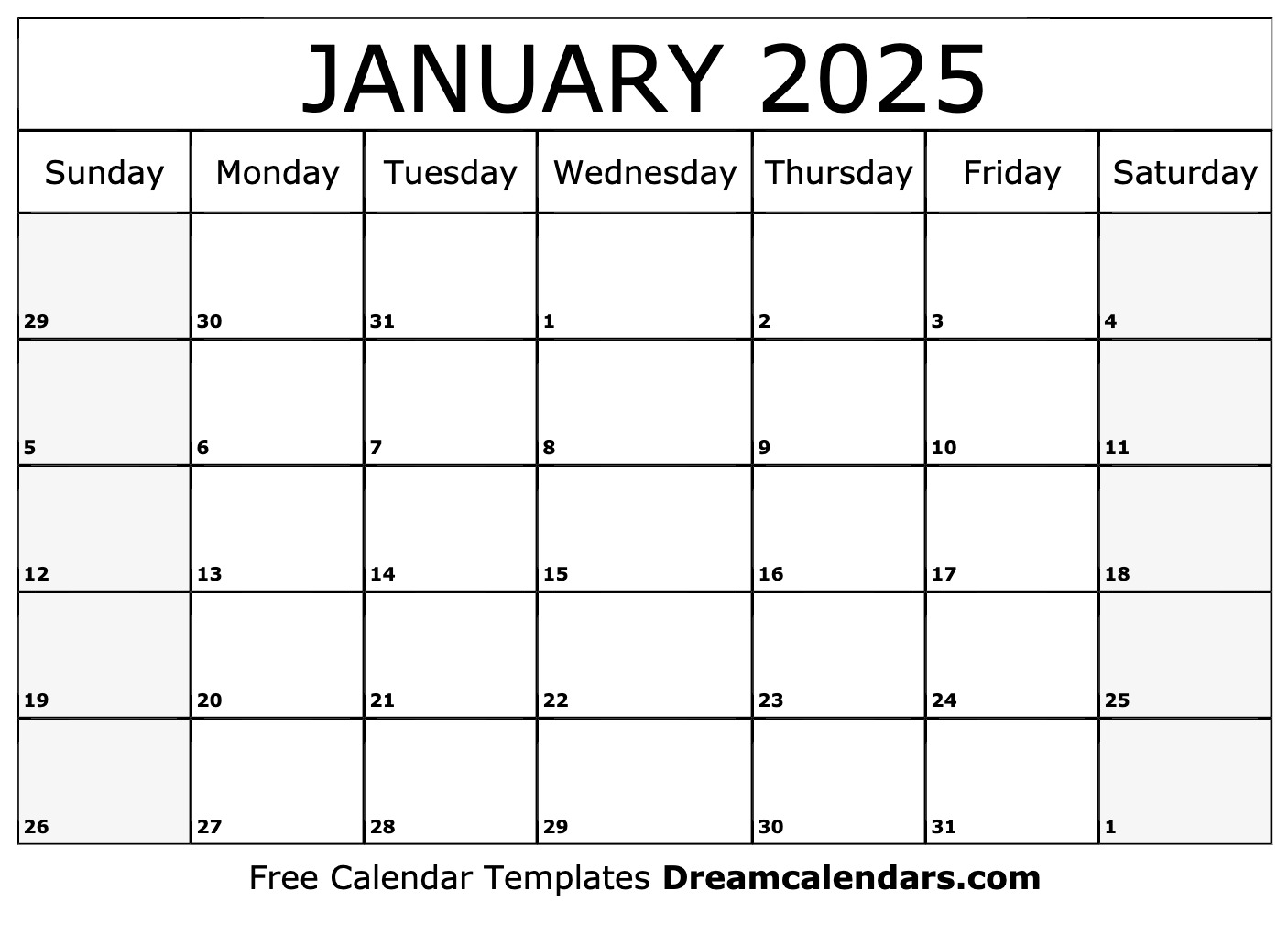Navigating the Holidays: A Comprehensive Guide to January 2025
Navigating the Holidays: A Comprehensive Guide to January 2025
Introduction
With enthusiasm, let’s navigate through the intriguing topic related to Navigating the Holidays: A Comprehensive Guide to January 2025. Let’s weave interesting information and offer fresh perspectives to the readers.
Table of Content
Navigating the Holidays: A Comprehensive Guide to January 2025

January 2025, a month often associated with resolutions and new beginnings, also presents a unique tapestry of holidays and observances. Understanding this calendar can be beneficial for individuals, businesses, and communities alike. This guide aims to provide a clear and comprehensive overview of the holidays that mark January 2025, emphasizing their historical significance, cultural relevance, and potential impact.
Understanding the January 2025 Holiday Landscape
The first month of 2025 is punctuated by a diverse range of holidays, from nationally recognized celebrations to smaller, culturally specific observances. These holidays serve as opportunities for reflection, celebration, and connection. They offer a chance to acknowledge historical events, honor cultural traditions, and foster a sense of shared identity.
Key Holidays in January 2025
1. New Year’s Day (Wednesday, January 1): This global holiday marks the beginning of a new year, often celebrated with festivities, resolutions, and reflections on the past year.
2. World Braille Day (Thursday, January 4): Commemorated annually on January 4th, this day honors Louis Braille, the inventor of the braille reading and writing system for the blind. It highlights the importance of literacy for all and promotes awareness of the challenges faced by visually impaired individuals.
3. National Bobblehead Day (Friday, January 4): While seemingly lighthearted, this day celebrates the whimsical and collectible nature of bobbleheads, often associated with sports teams and pop culture figures.
4. National Blood Donor Month (January): Throughout January, communities across the United States come together to raise awareness about the importance of blood donation. This month encourages individuals to consider donating blood, highlighting its crucial role in saving lives.
5. International Day of Education (Tuesday, January 28): This day promotes the importance of education for all, emphasizing its role in fostering peace, sustainable development, and human rights. It encourages global collaboration to ensure quality education for all individuals.
6. National Puzzle Day (Wednesday, January 29): This day celebrates the joy and intellectual stimulation derived from puzzles, ranging from crosswords and jigsaw puzzles to Sudoku and escape rooms.
7. Holocaust Remembrance Day (Thursday, January 30): Observed annually on January 27th, this day commemorates the victims of the Holocaust, a period of systematic genocide during World War II. It serves as a powerful reminder of the dangers of intolerance and prejudice.
8. Martin Luther King Jr. Day (Monday, January 20): A federal holiday in the United States, this day honors the life and legacy of Martin Luther King Jr., a prominent civil rights leader who fought for racial equality and social justice. It is a day of reflection and action, encouraging individuals to continue the fight for equality and justice.
Beyond the Calendar: Understanding the Significance
While these holidays are marked on the calendar, their significance extends beyond mere dates. They provide opportunities for individuals, communities, and nations to:
- Acknowledge Historical Events: Holidays like Holocaust Remembrance Day and Martin Luther King Jr. Day serve as powerful reminders of pivotal moments in history, prompting reflection and action.
- Celebrate Cultural Heritage: Holidays like World Braille Day and National Bobblehead Day celebrate diverse cultural traditions and interests, fostering a sense of community and shared identity.
- Promote Social Awareness: Holidays like National Blood Donor Month and International Day of Education raise awareness about critical social issues, encouraging individuals to engage in meaningful action.
- Foster Connection and Community: Holidays offer opportunities for gatherings, celebrations, and shared experiences, strengthening bonds within families, communities, and nations.
FAQs about the January 2025 Holiday Calendar
Q: Are there any holidays specific to certain regions or cultures in January 2025?
A: Yes, January 2025 features numerous culturally specific holidays. For instance, in India, Pongal, a harvest festival, is celebrated in mid-January. In China, the Spring Festival, also known as Chinese New Year, falls in late January or early February, depending on the lunar calendar.
Q: How can individuals and businesses utilize the January 2025 holiday calendar?
A: Individuals can use the calendar to plan personal celebrations, engage in meaningful activities related to specific holidays, and stay informed about cultural events. Businesses can leverage the calendar to schedule marketing campaigns, plan events, and ensure respectful observance of holidays relevant to their workforce or customer base.
Q: How can the January 2025 holiday calendar promote inclusivity and understanding?
A: By acknowledging and celebrating the diversity of holidays observed in January 2025, individuals and communities can foster greater understanding and respect for different cultures and traditions. This can lead to more inclusive workplaces, schools, and communities.
Tips for Utilizing the January 2025 Holiday Calendar
- Plan Ahead: Review the calendar in advance to plan for potential holiday closures, schedule personal celebrations, or adjust work schedules accordingly.
- Educate Yourself: Take the opportunity to learn about the history, significance, and traditions associated with each holiday, deepening your understanding and appreciation.
- Engage in Meaningful Activities: Participate in events, volunteer for relevant causes, or engage in personal reflection related to the holidays.
- Promote Inclusivity: Be mindful of and respectful towards individuals who may be celebrating different holidays, fostering a sense of inclusivity and understanding.
Conclusion
The January 2025 holiday calendar is more than just a list of dates; it represents a tapestry of historical events, cultural traditions, and social awareness opportunities. By understanding and engaging with these holidays, individuals and communities can foster a deeper appreciation for diversity, strengthen connections, and contribute to a more inclusive and informed world.








Closure
Thus, we hope this article has provided valuable insights into Navigating the Holidays: A Comprehensive Guide to January 2025. We appreciate your attention to our article. See you in our next article!